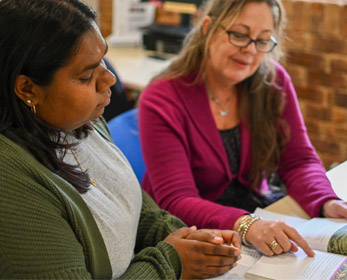ECU acknowledges and pays respect to the Noongar people, the traditional custodians of the land upon which its campuses stand, and programs operate. We recognise the ongoing connection to this land and pay respects to Elders, past and present.
ECU is committed to engaging with Aboriginal and Torres Strait Islander peoples and communities to ensure our students, graduates, staff, and executive committee contribute positively to sustainable community development. We are also devoted to working collaboratively to provide Aboriginal and Torres Strait Islander students and staff with support to assist them in realising their potential.
Research has great scope to improve services and outcomes for Aboriginal and Torres Strait Islander peoples and their communities. Appropriate preparation and planning in collaboration with Aboriginal and Torres Strait Islander peoples and community-controlled organisations, can ensure that research projects respect shared values as well as recognise the diversity, priorities, needs, and aspirations of these communities.
ECU has a responsibility to facilitate ethical research that engages and recognises Aboriginal and Torres Strait Islander participants as part of the research journey. We provide links to the guidelines and protocols that should be embraced by ECU staff and students when planning and conducting a research project with Aboriginal and Torres Strait Islander peoples and/or communities.
The National Health and Medical Research Council Guidelines Framework, shows how all of the relevant research guidelines in Australia are linked and provide the framework for how researchers and participants should be working together on research with Aboriginal and Torres Strait Islander Peoples and communities.
National Health and Medical Research Council, Australian Research Council and Universities Australia joint national guidelines

